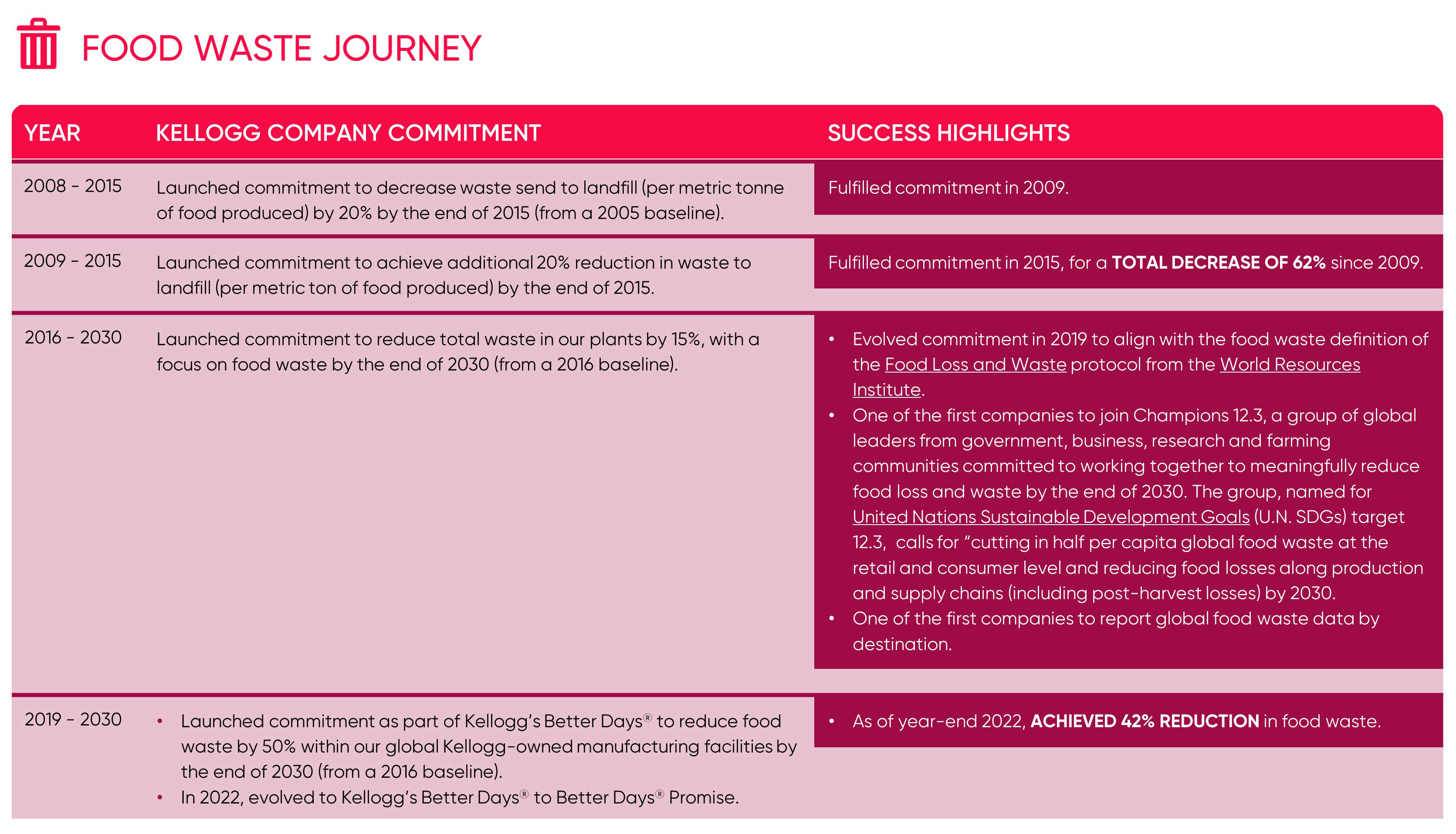
Food Waste Reduction
 |
Reduce food waste across global Kellanova-owned manufacturing sites by 50% by the end of 2030
Reducing food loss and waste can be more beneficial than ever before as our world faces multiple crises. At a time when the world is experiencing high food prices and one in nine people globally face food insecurity1, 30-40% of the food produced doesn’t get eaten.1 Emissions from food loss and waste contributes to the world’s total greenhouse gas emissions.1
As a global food company, we can play a role in helping to eliminate food waste from our value chain and creating a positive impact for people and planet.
Our Commitment
As part of our Kellanova Better Days™ Promise goal to create better days for 4 billion people by the end of 2030, we aim to reduce food waste when making our food by 50% within our global Kellanova-owned manufacturing facilities by the end of 2030 (from a 2016 baseline).
Our Approach
To achieve our goal, we are focused primarily on measuring food waste and loss in our facilities and implementing solutions, such as modifying equipment to enhance production efficiency, to eliminate waste in our processes when making food.
We also contribute in other important ways:
- Farming – Working with partners to reduce pre and postharvest loss on farms to ensure that more of the food that is grown is consumed.
- Reaching out to consumers – Standardizing our food date labels and educating consumers if food is safe to consume, as well as delivering tips and packaging innovation to help them reduce unnecessary food waste at home.
- Sharing with communities – While it doesn’t contribute to our food waste metrics, we donate food to help feed people in need either due to natural disasters or chronic hunger in communities we support around the world.
We measure and report our food waste in conformance with the Food Loss and Waste (FLW) Protocol. This protocol allows an entity to choose the combination of materials and destinations it considers to be “food loss and waste.” Kellanova’s definition of “food loss and waste”, which we label “organic waste”, extends to all organic waste lost in our facilities. For more information, please visit our Kellanova Better Days™ Promise Commitments and Methodology.
Our Journey
Kellanova is a new company with a foundation that’s more than a century long. We are committed to carrying forth the legacy of Kellogg Company, who led with purpose to create a positive impact for people and planet. Like our name signals, we’re building on that legacy of doing good, built over the previous 117 years, while looking ambitiously toward the future.
Progress reported below is for Kellogg Company through the end of 2022. Kellanova will report on progress toward our commitments in our initial Social and Environmental Report that we will issue in 2025.

[2] Animal feed, bio-based materials/biochemical processing, co-digestion/anaerobic digestion, composting/aerobic processes, controlled combustion, land application, landfill, and wastewater treatment.